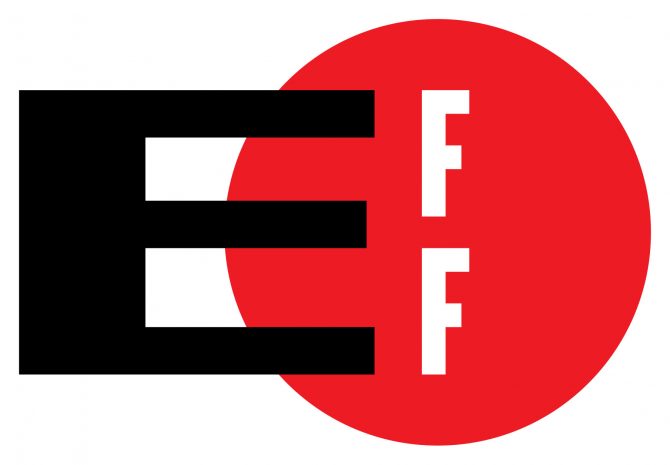Ever since the Digital Millennium Copyright Act (DMCA) was enacted in the US back in 1998, it has been illegal to break or bypass encryption or other types of digital rights management placed on most types of media, software and even some hardware. It is also illegal to distribute any tools that facilitate decryption, even though they might be necessary to exercise fair use rights. It has been a long time coming, but finally someone has stepped up to challenge these rules. The Electronic Frontier Foundation (EFF) has filed suit in a federal court in the District of Columbia, stating that the rules outlined in section 1201 of the DMCA concerning encryption and digital rights management are unconstitutional.

The use of the DMCA has expanded beyond the original intent to protect music, movies and other types of media, and has been applied to game consoles, automobile software and even industrial machinery, such as farm tractor repair. In this expanded role, the DMCA is interfering with the rights of owners to repair their own equipment, or modify it beyond the intent of the sellers.
There is a method to ask for exceptions to the anti-circumvention rule through the Library of Congress, but these rulings are slow to come forth and are only temporary solutions. At one time it was illegal to jailbreak your phone, then an exemption was passed, then it expired, so this simple act done by hundreds of thousands of citizens was in a confusing vortex of legal status until Congress stepped in to make it legal once and for all. But the EFF says the whole process is flawed, and an obvious abuse of the people's rights, claiming that "the rulemaking itself is an unconstitutional speech-licensing regime."
The EFF have been joined by Andrew Huang, known as a "hacker", who runs a business called Alphamax, which creates NeTVCR devices for editing HD television, which requires breaking the HDMI protection placed on high definition signals. This type of editing allows new forms of free speech, such as commentary on political figures, satire or even new works of art combining different video sources into something entirely different. Huang wrote on his blog that before the DMCA, "we had the right to tinker with gadgets that we bought, we had the right to record TV shows on our VCRs, and we had the right to remix songs."
EFF staff attorney Kit Walsh wrote, "Section 1201 is a draconian and unnecessary restriction on speech and the time has come to set it aside. The future of cultural participation and software-related research depends on it."
And in a separate post, EFF member Parker Stevens stated, "Copyright law shouldn’t be casting a legal shadow over activities as basic as popping the hood of your own car, offering commentary on a shared piece of culture (and helping others do so), and testing security infrastructure." The effects of this section of the DMCA have had a profoundly negative effect on the country, and according to Stevens, "It’s time for the courts to revisit Section 1201, and fix Congress’s constitutional mistake."
I wholeheartedly agree with the EFF on this subject, and we here at MyCE have supported fair use rights of everyone for many years, even if it meant using tools that were technically illegal in many countries. We wish the EFF great success in this suit.
















